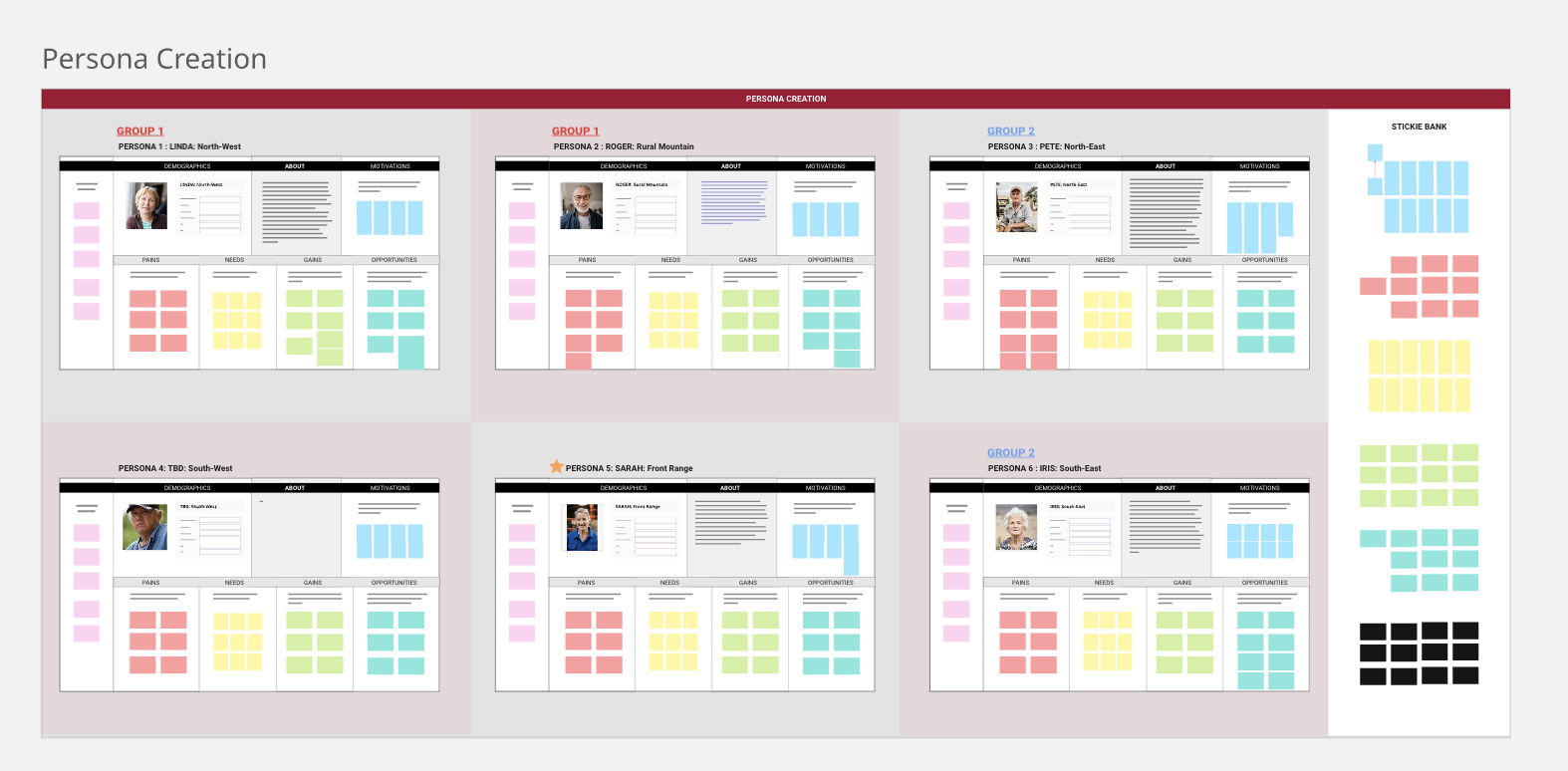Co-Creating Personas to Understand the Needs of Colorado’s Aging Population
August 2025
Project Overview
To better serve Colorado’s aging population, the Colorado Commission on Aging (CCOA) a state-appointed group that advises on the needs and concerns of older adults, wanted to understand the region-specific challenges and opportunities facing this population. The AgeTech Collaborative™ from AARP Design Thinking team collaborated with the CCOA on a project to uncover key challenges, unmet needs, and lived experiences of older adults through expert interviews, research synthesis, and co-creation. The resulting personas were actionable human-centered tools that helped guide strategy, planning, and services that reflect the real lives of older Coloradans.
To guide the work and ensure alignment with the needs of older adults across Colorado, the project was anchored in two objectives:
-
- Identify key needs of older adults in Colorado by designated geographic region.
- Translate those needs into actionable personas.
Approach
The AgeTech Collaborative Design Thinking team used a phased approach to build empathy, validate findings, and co-create personas:
-
- Secondary Research
The Design Thinking team, with the support of the AARP research team, conducted a comprehensive review of existing data to lay the foundation for the personas. This included analyzing demographic data and assessing psychographics to understand attitudes, motivations, and behaviors. These insights helped determine key attributes, such as income, household makeup, average age, and lifestyle factors that vary across regions and populations. - Subject Matter Expert Interviews
The team interviewed select local subject matter experts in aging services, healthcare, housing, and transportation to validate research findings and surface lived experience. These conversations focused on perceptions, opinions, beliefs, and attitudes, as well as barriers older adults face in accessing services and support. The experts also helped highlight regional differences and emerging needs. - Persona Workshops
The persona development process was highly collaborative. The Design Thinking team led a series of work sessions with the CCOA’s key point person to align on goals, understand their vision, and capture additional insights to shape the direction of the work. These sessions allowed the team to co-create the structure and content of the main workshop, ensuring it reflected the unique needs and perspectives of the CCOA team.
The main workshop brought together members of the CCOA and additional subject matter experts to co-create five unique personas, each representing a distinct region of Colorado. The stories for each persona were carefully crafted by the Design Thinking team using insights from interviews and expert input. This ensured that the personas not only reflected data, but conveyed real, human experiences that stakeholders could relate to and act on. During the session, participants worked in small groups using research-backed profiles as a starting point (see Figure 1 below). Together, they shaped motivations, needs, pains, and gains for each persona, specifically designed to map out and identify opportunities for practical, strategic solutions to better serve older adults in different regions of Colorado. A significant portion of the workshop was dedicated to opportunity mapping—surfacing practical, strategic ways to address unmet needs and improve the aging experience across Colorado.
- Secondary Research
Figure 1: Snapshot of the persona creation process.

Outcomes
The workshop output was refined and delivered as a set of five region-specific personas delivered in the AgeTech Collaborative Design Thinking template. Together, the personas captured emotional and functional needs of older adults across Colorado, offering a holistic view of their diverse experiences, challenges, values and aspirations. Grounded in both data and real-world stories, the personas helped bring abstract data to life and create a shared language across stakeholders serving as a tool to support more informed, human-centered decision-making. The personas served as a shared reference point across agencies and initiatives, helping ensure that policies and programs are grounded in empathy, equity, and real-world insights.
